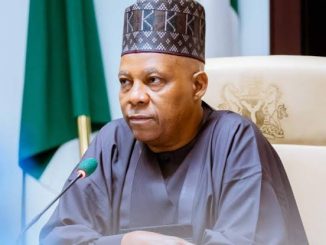
By Marvelous Nyang
July 18, 2024
Nigeria’s leading labour unions reached an agreement on Thursday for a new minimum wage of 70,000 naira ($44) per month, concluding a protracted negotiation with the government that had raised concerns of potential strikes.
In the face of the country’s worst cost of living crisis in decades, there were fears of unrest similar to recent protests in Kenya. The Nigerian Labour Congress (NLC) and the Trade Union Congress (TUC) had argued that rampant inflation and a weakening currency, exacerbated by President Bola Tinubu’s economic reforms, were placing immense pressure on workers.
Inflation has significantly reduced purchasing power, leaving many Nigerians struggling to afford basic necessities. The new minimum wage, announced by Information Minister Mohammed Idris and union leaders, marks a substantial increase from the 30,000 naira per month agreed in 2019.
NLC President Joe Ajaero expressed ambivalence about the increase due to the current economic conditions but acknowledged the need to progress with the agreement to avoid prolonged negotiations. He also indicated that future wage reviews will occur every three years, rather than the traditional five-year interval.
ALSO READ: How to persuade people to change their behaviour
The unions had halted a planned strike in early June to allow for negotiations but had warned of potential action if no agreement was reached. Idris stated that President Tinubu would promptly submit the proposal, including the three-year review clause, to parliament for approval. Tinubu has pledged to maintain his controversial reforms, including increases in electricity and gasoline prices.
In addition, Tinubu has requested $4 billion in extra funding to address budget deficits, with significant portions earmarked for infrastructure and renewable energy investments, such as compressed natural gas (CNG) plants and buses to reduce transportation costs, according to Idris.




